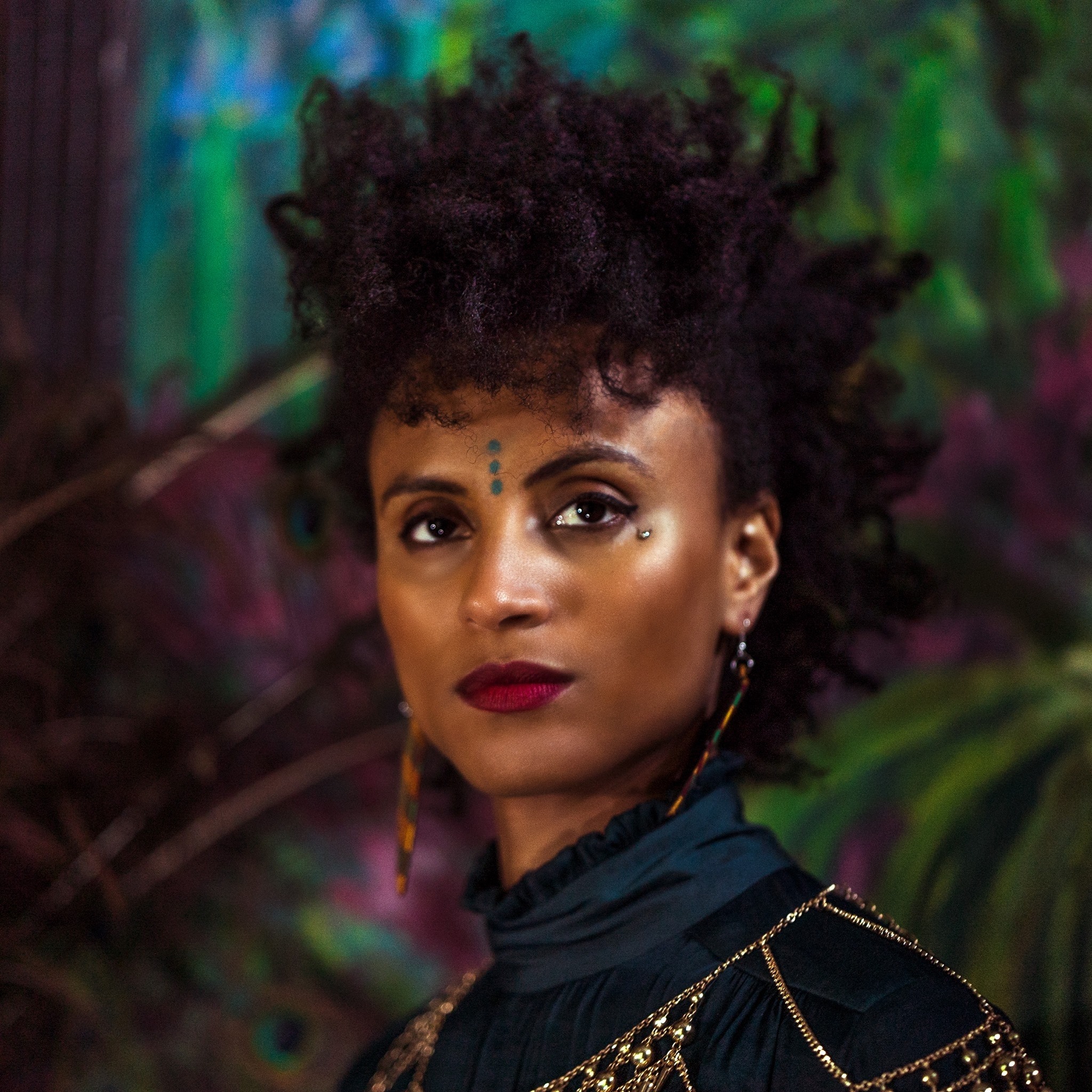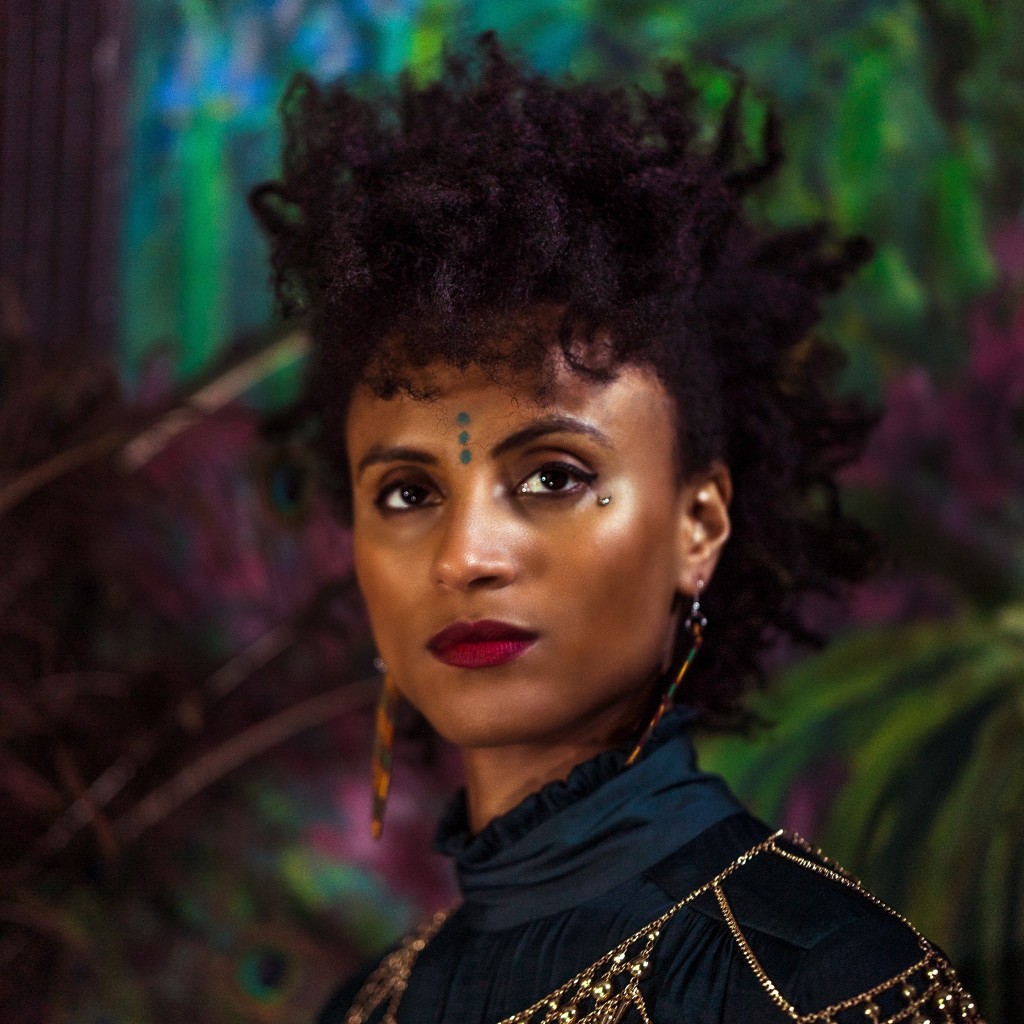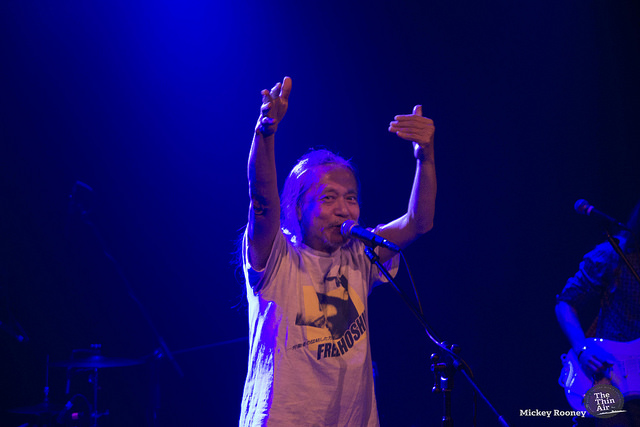Sallay Matu Garnett has been steadily honing her musical style as Loah, over the last five years. During this time she has collaborated extensively with some of Ireland’s prominent musical figures such as Hozier, Glen Hansard and Bantum. Quickly, critics and audiences became increasingly interested in the music she was writing and releasing as a solo artist. Garnett’s music is informed and inspired an eclectic mix of genres that she was exposed to growing up in both Sierre Leone and Ireland. Where there are traces of traditional West African harmonies you can also hear Western influences throughout her repertoire. Such diversity is what makes Loah such an interesting musician because there is no one defining sound that pins her creativity.
Earlier this month, Loah shared her debut EP entitled This Heart, five songs centred on the female experience set to soulful arrangements. Zara Hedderman spoke to her about finding her identity as an artist, the prospect of an album and the collaborative process of making music.
You grew up between Maynooth and Sierra Leone, how have both these, very different, cultures impacted upon your approach to both the composition of melody and lyrical content of your songs?
Essentially I was exposed to everything someone who’d grow up in Maynooth would be; rock, trad and singer-songwriters and, of course, pop and rap megastars that are popular everywhere. I would have listened to a lot of West African and Caribbean music in West Africa that wasn’t being played on our shore, at all. Although when I moved home in my teens my friend found a reggae dancehall night in Temple Bar Music centre that used to play Beenie Man! Needless to say, I was delighted. How this relates back to my process of making music can be traced to the references I make to the harmonies and sounds that I grew up listening to in my tunes and when I choose to use the languages I grew up with. Also, my mum is extremely passionate about music so I grew up in a household where everything was played.
I saw a description of Loah as being your ‘alter-ego’. Why did you choose to make music with the veil of a character or persona? Was it a conscious attempt to create some distance between you and your art or was it a means to delve into writing about things that are maybe outside of your own experiences and/or personality?
I would say it’s more the former than the latter. I feel like my greatest desire – and privilege, given the wonderful circumstances I find myself in – is to express myself. At present, that means music, artistic pursuit. And so Loah is this apparition of me. That could change. My soul might make different demands of me in 10 years time! It would be remiss of me to associate my entire identity with making music.
I like to be able to step away and be Sallay sometimes, who is much more than music, though music is my current love! It also does give me the freedom and permission within that ‘persona’ to extrovert and express perhaps more than I allow myself in my daily life. I grew up and became someone who has worked in a very ‘formal’ and traditional, non-creative profession, so it also helps to have a cloak that I can put on that acts as an escapist route into my imagination away from the more obedient and routine-centric side of myself.
At a young age you were classically trained in playing the violin and as you entered your teens you joined orchestral ensembles, sang in choirs and learned how to play the piano which led to you writing songs. Did you grow up in a house where music was omnipresent and instilled into you from your parents?
Absolutely. Both my parents adore it but especially my mum – she is so widely listened, has such enthusiasm and delight for so much of the arts and that rubbed off. She also drove me to innumerable music lessons, concerts and encouraged me to practice with the patience of a saint and the gentle encouragement of a true coach. I really don’t know how she did it sometimes, I wonder if she had one of those Time-Travel watches Hermione gets in one of the Harry Potter books so she can turn back time to fit in more stuff!
Do you think that your constant participation in musical outlets such as choirs and the Trinity Orchestra gave you more confidence to pursue music as a career and perform in front of large crowds of people and also teach you how to work collaboratively?
I would say yes to all of the above. I also fronted a band in college called Jazzberries which helped me explore moreso the kinds of gigs I do now. Still though, when I started putting out videos as Loah I wasn’t very confident – I didn’t fully feel like a lead ‘artist’ or a musician, if you will. I’m still growing into that self-concept because there is always more work to be done, to be written, and I have lots to learn.
But I am more confident in my capacity to learn and change now and that’s where my confidence comes from, knowing that I have it in me to always grow creatively and meet new career and personal challenges.
In the last few years you have done a lot of collaborative work with several esteemed Irish musicians such as Bantum and Hozier. Do you approach how you work on other people’s music differently to when you are creating your own music?
Yes! It’s completely different. I might almost say I prefer collaboration at the moment because I put too much pressure on myself when I work alone. In a collaborative process there is a more clearly defined role for each person, and you’re literally doing half or even a quarter of the work if it’s a band yet you create this amazing thing that has everyone it. Plus it’s often more fun!
That said, sometimes it doesn’t work either. I do think, though, that in a successful collaboration the work can potentially become even more than the sum of its parts because each artist steps even more deeply into their own unique vibe yet totally bounces off something they could never have written themselves, which is innately inspiring.
Following on from that question, how do you feel now that you have launched your debut EP, This Heart, and are alone in presenting your music as wholly individual representations of you? Is that slightly daunting?
It’s less daunting than if I had done it sooner. As I mentioned when I started out I was a little more insecure so launching something would have felt scarier. Now I’m desperate to share work! I’m also surer of myself as a person and a woman, more focussed. I feel I can do both now; work with others and create alone and that’s a really great place to be. I needed to stand alone and go through that rocky road in order to graduate to this place though.
This Heart has been in the making for a while prior to its release earlier this month. Was there any particular reason why you didn’t rush the release of these five songs?
I was slightly in the public eye from the moment I released my first video, first song online. It got a great reception, way more than anticipated, but I wasn’t as ‘formed’ and secure a performer as the song themselves seemed. Bearing in mind I had literally just come out of studying Pharmacy in college.
Also, during that time I didn’t know how I worked best, how I sang best. There were so many things I needed to figure out. I think an EP was expected of me so I kept mentioning it, but I didn’t really feel like doing one for ages. I just wanted to gig, to be on stage and perform in front of an audience. There were band line-up changes. Most artists hide away and work on their sound and do all this stuff in the background, then release something out of nowhere so it seems like it hasn’t been a long time in the making. Whereas I made the ‘making of’ public, gigging and such and promoting every step of the way very visibly.
Honestly, I’ve been amazed by how interested people have been in my journey, and it has meant that there is a bigger appetite for my work than if I had sprang it on people out of the blue. I’ve taken as much time to grow as many artists I know, but just more publicly. I am confident I can connect with people in any gig setting now which has always been super important to me, and now I’m converting that to record as best I can. Also I did some acting in the meantime which was something I really wanted to explore, which has taken time away from music a bit but has also grown me as an artist. I needed to take the journey I’ve taken and I feel good about releasing now.
Anytime your name is mentioned in conversation people seem to instinctively react by solely saying, ‘Cortège’. What is the significance of this song to you? Why do you think that it resonates so strongly to Irish audiences, especially as the words are written and sung in the Sierra Leone languages Sherbro and Mend?
I often ask myself the same question! It’s definitely one of those songs that I feel ‘wrote me’ rather than the other way round. It came, at first, quite effortlessly and it always dictated that it should be Sherbro and Mende. As a result, I sing it with total conviction and the intention of the song – about feminine energy – is very clear in me, so it rings true to people.
Oumou Sangare is one of my favourite artists, she sings in Bambara (a language in Mali) and that has only ever been beautiful to me, rather than strange despite not being able to fully understand it. Listening to her all along as well as loads of other West African artists whose language I don’t speak actually gave me the confidence to write this song. It was as much written for Oumou herself, who is also a renowned activist for the rights of African women, and for my mum who showed me Oumou’s music, as my audience.
What is the most important thing to you when you are writing a song, especially the lyrics that you are going to deliver to the listener? Are you always conscious of your audience when you are writing?
Never. In times when I’m conscious of my audience, I don’t write at all! It has to be just between me and the song in the initial stages. Then I feel free enough to be honest lyrically. Considering the audience’s subsequent perception and reaction comes slightly later. I have adjusted tunes once they’re written so I feel more comfortable singing them in public. There is also the fact that an emotion you describe lyrically may be so real to you now – particularly darker ones – but it may not ring true in a while and so it needs to be crafted in a way that you yourself can keep connecting to later on and even deliver with conviction to an audience years after the fact. I’ve read Sinead O’Connor say, for example, that she doesn’t sing ‘Troy’ anymore because she doesn’t connect to the energy of it, but she can always, always connect to ‘Nothing Compares 2 U’ and sing it with gusto. I am always conscious of that when I am performing.
You have defined your musical style as ArtSoul. What exactly is ArtSoul comprised of and what does it embody?
Artsoul simply means soul music, that incorporates the scope of all the musical art I love. I feel it’s still soul music but it might feature the classical harmony I played as a child, the folk that makes me sing, the blues I resonate with, the rhythms that move me, the poetry and languages that grips me, that my mind pieces together. All of it!
Have you been working on an album? If so, what have been your core inspirations and influences for the material you’re working on?
I am working on a second EP, first. But, I promise it won’t be as long coming as This Heart! I have a better handle on how I work now so I can streamline the process. I know my recorded voice more intimately, what sounds I’m getting into more. The next set of tunes is much groovier and rhythm-driven. Currently, I’ve been listening to a lot of afrobeat and hip-hop and generally having more fun in life, I’ve been more sociable than I have been in years! So it will reflect all that and the band will be more involved so it’s set to be more collaborative. I’m really looking forward to hearing the finished product.
What are your plans for the summer, will you be playing a lot of gigs and festivals?
Yep! A couple of festival gigs such as Body and Soul, Electric Picnic, Galway Arts, Clonmel Junction. Aside from that I’m going to be writing tunes for the next series and doing some exciting collaborations. After some really challenging months I’m feeling so thankful and so good about life at the moment and looking forward to making more sweet tunes. It’s a really exciting time for me and my music.
Photo by Caolán Barron






